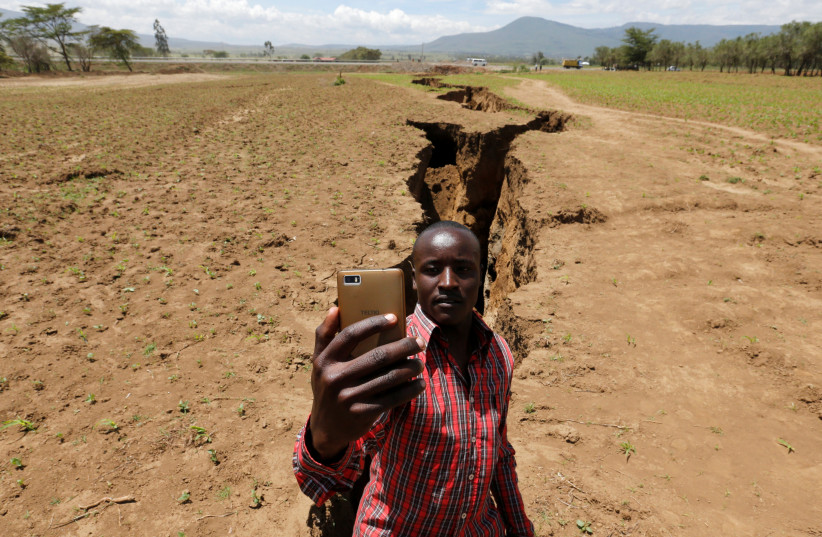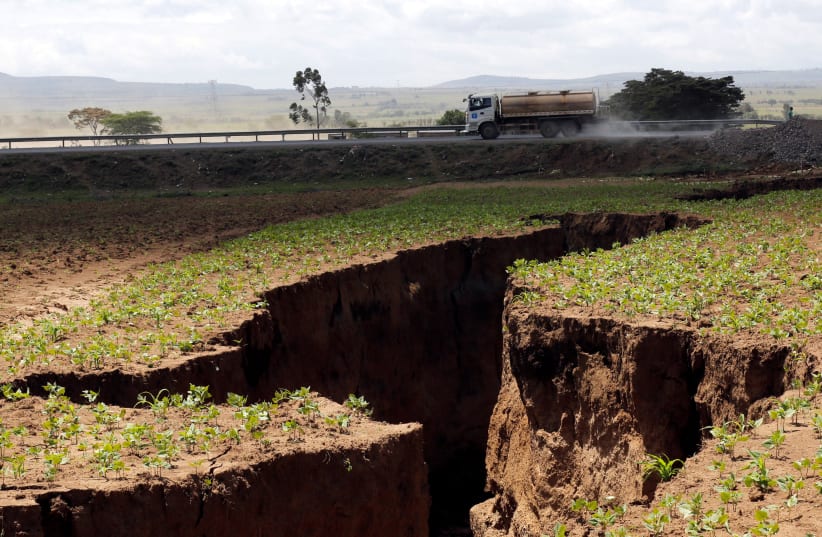Tectonic plate shifts in Ethiopia show that the African continent is splitting in two – paving the way for Earth’s sixth ocean to emerge, according to researchers.
The shift between tectonic plates has been ongoing since the East African Rift – a 35-mile-long crack in Ethiopia’s desert – emerged in 2005.
The separation of the Somalian tectonic plate and the larger Nubian tectonic plate will effectively split the world’s second-largest continent in two – a phenomenon that hasn’t been observed in hundreds of millions of years when South America and Africa were divided into different continents.
The findings are based on a 2004 study on the separation of the Somalian tectonic plate and the larger Nubian tectonic plate. The study, which was published in the peer-reviewed scientific journal Earth and Planetary Science Letters, found that the plates separate a few millimeters per year.


What will a split Africa look like?
Currently-landlocked countries in Africa, such as Ethiopia, Uganda and more will see the introduction of a coastline – expanding possibilities for trade and production. Further, the split would lead to the emergence of a new ocean.
“The Gulf of Aden and the Red Sea will flood in over the Afar region and into the East African Rift Valley and become a new ocean, and that part of East Africa will become its own separate small continent,” Ken Macdonald, a marine geophysicist and a professor emeritus at the University of California, told Mashable.
While the splitting of the African continent and the subsequent ocean that would arise holds an abundance of possibilities, the continent will not completely split for another 5 to 10 million years, according to researchers.
The Environment and Climate Change portal is produced in cooperation with the Goldman Sonnenfeldt School of Sustainability and Climate Change at Ben-Gurion University of the Negev. The Jerusalem Post maintains all editorial decisions related to the content.
